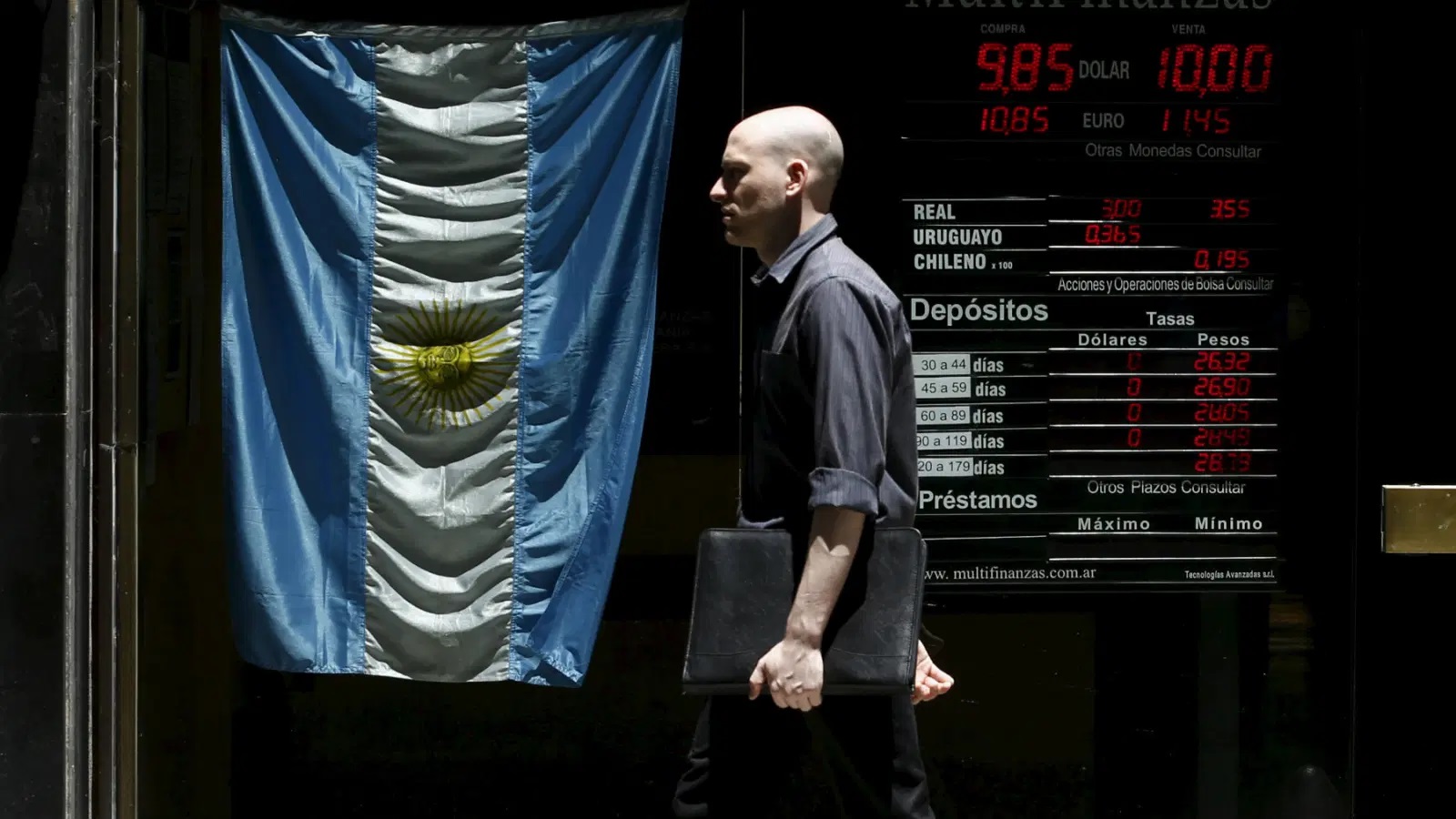8299
0
Argentina's Net Foreign Exchange Reserves Are Already Almost Zero
According to analysts and investors, Argentina's net foreign exchange reserves are already almost zero.

Yazar: Tom Roberts
Yayınlanma: 24 Kasım 2020 00:24
Güncellenme: 23 Şubat 2026 06:05
Argentina's Net Foreign Exchange Reserves Are Already Almost Zero
According to analysts and investors, Argentina's net foreign exchange reserves are already almost zero. This poses a difficult choice for the central bank: either doubles the controls that have failed to stop the currency's decline, or allows its currency peso to continue to depreciate. The Argentine peso has been under pressure throughout the year, with inflation already rising to almost 40%. The lack of confidence in Argentina's economic and monetary policy thus continues to weigh on its currency. "If the population does not trust the official price of the dollar, if it thinks it will rise and is frightened by the decline in reserves, there will be no choice but to devalue," said Gabriel Torres, an analyst at Moody's. The Argentine economy is declining by 12% this year, partly as a result of measures to stop the spread of a new coronavirus pandemic. Its production is about 30% lower than before the pandemic. The official exchange rate of the controlled peso fell by 25% this year, and it closed trading at just over 80 pesos (ARA) per dollar. However, the unofficial rate is close to 160 ARA / USD. Argentina is in a bad situation. Its gross foreign exchange reserves fell to about $ 39 billion (€ 32.96 billion) from almost $ 43 billion a year ago and from $ 77 billion in April 2019. And so-called net reserves, net of central bank liabilities that are not in pesos , according to some experts, are already almost zero. Earlier this month, Finance Minister Martín Guzman said Argentina would seek an agreement with the International Monetary Fund (IMF), which would require strict economic reforms.İLGİLİ HABERLER





European stocks soared and focus shifted to German retail sales after Powell's speech!

Forex Signal For TRY/USD: Inflation Slowdown in November.

Forex Signal For GBP/USD: Bullish Trend Still Not Breaking While Recovery Continues.

Forex Signal For EUR/USD: Starry US Data Points to Higher Fed Increases.

Forex Signal For BTC/USD: Downside Continues as Bitcoin Recovery Moves Less.
En Popüler Haberler
Yorum Yap
Yorumlar
Henüz yorum yapan yok! İlk yorumu siz yapın...